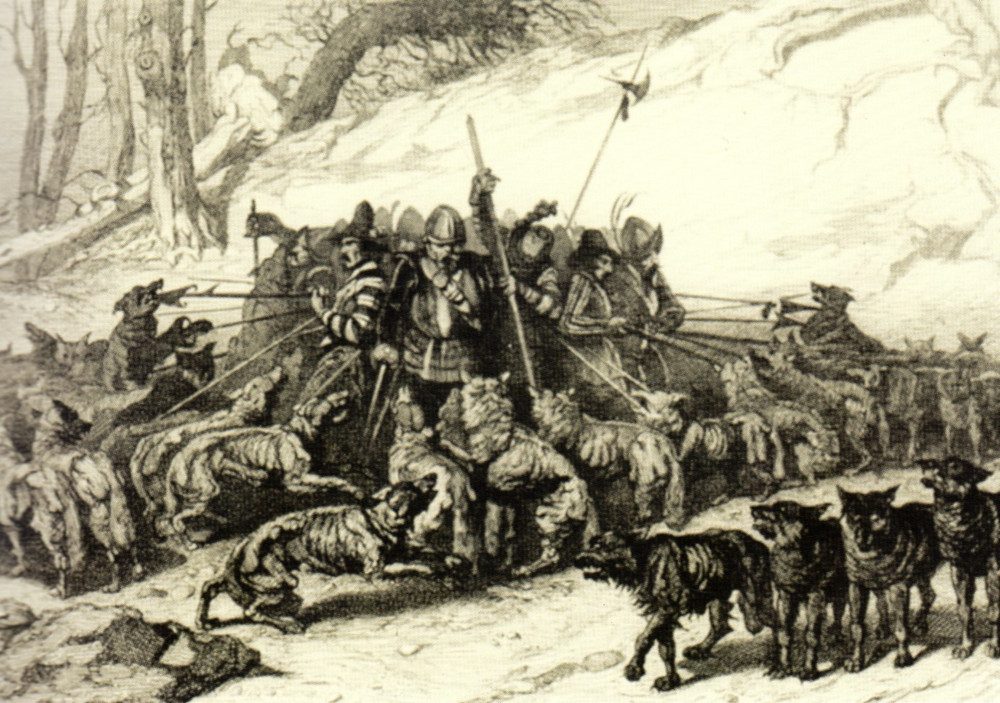Welsh clergyman E. W. L. Davies, who went hunting in the Monts d’Arrée around 1855, brought back a first-hand account of the relationship between wolves and the Breton people: “A troubled atmosphere reigned due to the recent disappearance of the daughter of one of the villagers from Huelgoat. As is the custom in that area, the child had been given a little black sheep to look after by her parents […]. The village folk’s belief that a wolf could never harm a human remained strong and unwavering […] and they spent long days, weeks even, searching. Certain village folk came to the conclusion that it was a werewolf. Six weeks had gone by when a coal merchant found her. She had simply followed the wolf that had taken her sheep!”
In fact, the Bretons thought that a wolf that attacked humans was not a ‘normal’ wolf. This was a belief shared by those who lived during the time of the French Wars of Religion (at the end of the 16th century), who gave the same explanation, according to Canon Moreau, who wrote at the time: “The trickery and cunning of these animals is somewhat similar to that applied in warfare, leading folk to believe that these are not natural wolves, but rather dead soldiers that have been brought back to life in the form of wolves […], and they commonly call them tut bleis in their tongue, meaning ‘wolf-people’.”
What’s more, a well-known prayer for protection against wolves makes the distinction between a small danger – a wolf – which calls upon Saint Hervé, and a great danger – a creature from Hell – which calls upon God: “If you are wolf, be gone in the name of Saint Hervé; if you are Satan, be gone in the name of God!”


